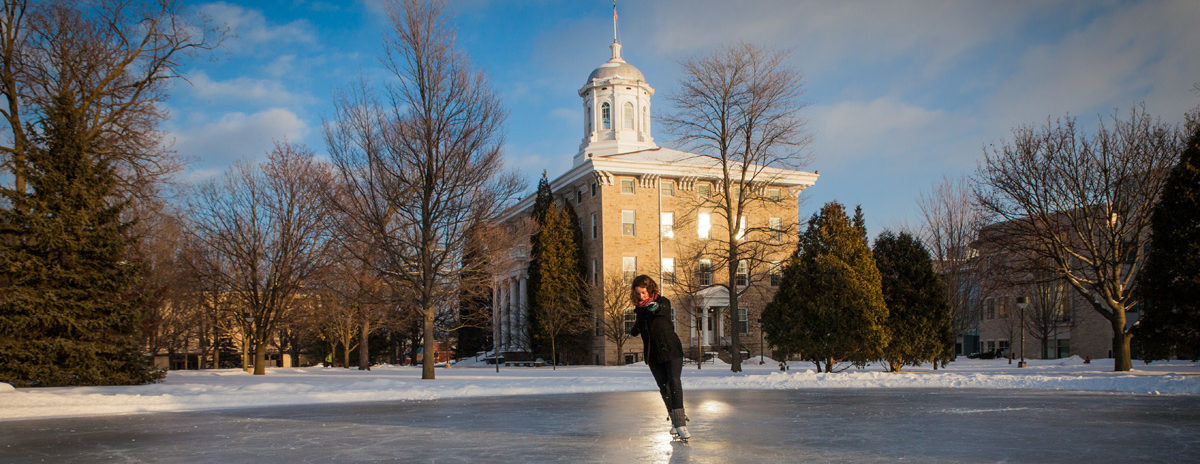…sudden 180-degree turns will sometimes have that effect.
For the past few years, we have been led to believe—whether it was in news stories or even in presidential State of the Union addresses—that higher education’s purpose was (or should be) vocational: colleges should train its students how to do something, preparing them to be Useful Citizens (in other words, “quickly deployed and employed”). Disciplines like business, science, engineering, technology—you know, practical things—were offered as the pavers on the path to prosperity.
The corollary was that the liberal arts and sciences, which don’t necessarily train you how to do a particular job, are a luxury, and, therefore, a risky investment. In some cases, government reinforced that message in alarming ways, as we saw in Florida’s recent proposal to create financial incentives to study those practical things (and, as a result, create disincentives to study the arts, humanities, and social sciences).
Which brings us to a completely different piece of news that ran in the June 18 New York Times (and the cause of that neck strain—which, for the record, may be one of the more pleasant neck strains we could have experienced). Perhaps that anti-liberal arts mindset may have been a bit short-sighted:
Humanities Committee Sounds an Alarm
A new national corps of “master teachers” trained in the humanities and social sciences and increased support for research in “endangered” liberal arts subjects are among the recommendations of a major report to be delivered on Capitol Hill on Wednesday.
The report comes amid concern about low humanities enrollments and worries that the Obama administration’s emphasis on science education risks diminishing a huge source of the nation’s intellectual strength. Requested by a bipartisan group of legislators and scheduled to be distributed to every member of Congress, it is intended as a rallying cry against the entrenched idea that the humanities and social sciences are luxuries that employment-minded students can ill afford.
People talk about the humanities and social sciences “as if they are a waste of time,” said Richard H. Brodhead, the president of Duke University and a co-chairman of the commission that produced the report. “But this facile negativism forgets that many of the country’s most successful and creative people had exactly this kind of education.” Read more…
Bias alert: the report was published by the Academy of Arts and Sciences’ Commission on the Humanities, which may have a bit of a vested interest in the outcome of the report. You can see the list of committee members here. It’s a wild mashup of several dozen people from the arts, higher education, private enterprise, and government. (The CEO of Boeing and Yo-Yo Ma at a table together? Yes please.)
On the other hand, the study was requested in 2011 by a bipartisan group of legislators that included Senators Lamar Alexander (R-Tennessee) and Mark Warner (D-Virginia), and Representatives Tom Petri (R-Wisconsin) and David Price (D-North Carolina), who were advocating for increases in research and teaching in the humanities and sciences—and looking for reasons to support that research with government and other agencies’ investments.
Regardless of the source or the origins of the report, this news is welcome to those of us in higher education who have been arguing that it is not an either/or world, but a both/and world: we need the liberal arts just as much as we need business and science and engineering and technology. In fact, they work together quite nicely. Creativity, innovation, collaboration, drawing meaning and understanding across apparently disparate disciplines—this is the playground of the liberal arts and sciences. Some of our greatest innovators and leaders have been liberal arts and sciences majors. As the sidebar in the New York Times piece shows, the two candidates in the last presidential election had undergraduate majors in political science (Obama) and English (Romney).
Our very own dean of the conservatory, Brian Pertl (a Lawrence University English and trombone performance major who went on to manage Microsoft’s Media Acquisitions Group before rejoining his alma mater in 2008), made perhaps the best argument for this both/and world in his recent TEDx talk called “Dancing Between Disciplines.” In typical liberal arts fashion, his argument is not so much an argument as it is a performance. (Warning: mind-blowing ideas accompanied by remarkably talented musicians included.) Check it out.


